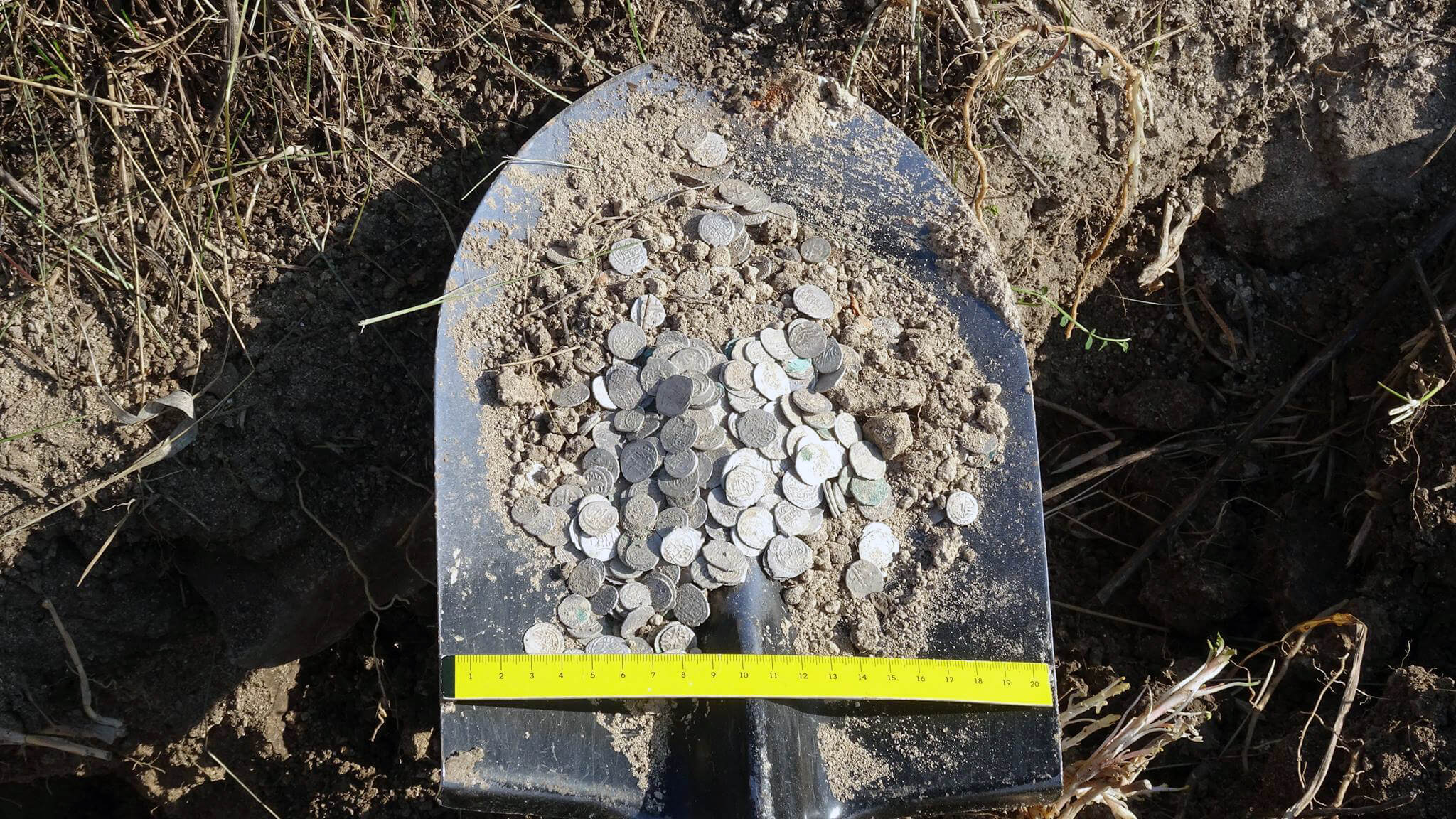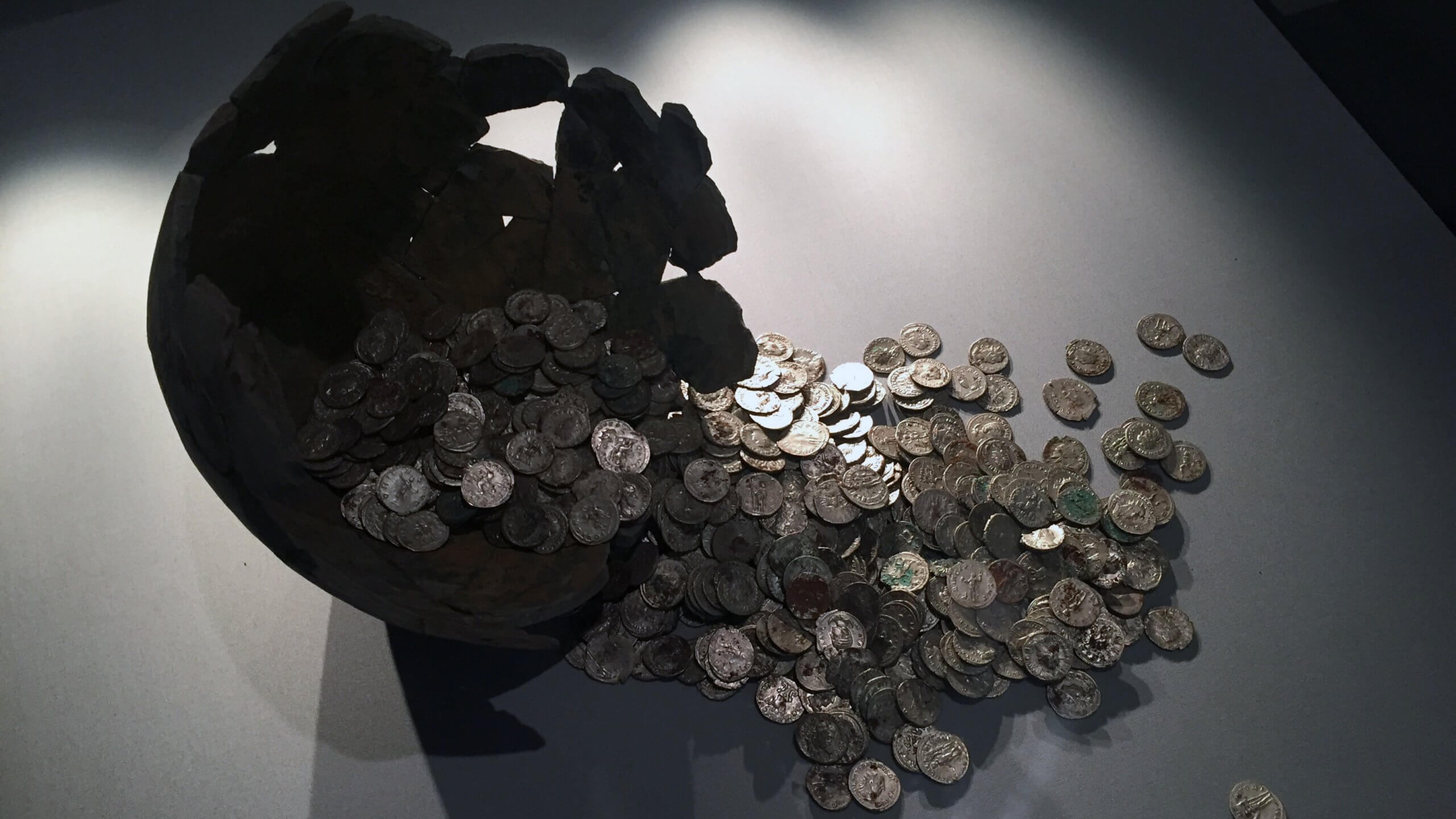If you find a treasure. What should a law-abiding citizen do?
I think that in our country it is difficult to find a person who has not dreamed of finding a treasure at least once in his life. People of the older generation grew up watching movies and adventure novels about treasure hunters such as: Treasure Island, The Count of Montecristo, The 12 Chairs, The Incredible Adventures of Italians in Russia and so on, on, on. Romance, adventure, emotions and a simple idea to get rich quickly and easily.
But, the most important thing in our fellow citizens that constantly fuels the obsession with finding treasure is the constant rumors, stories and tales that one of our acquaintances, distant relatives, neighbors in the country, or the third nephew of a work colleague’s mother-in-law has found (found ) recently treasure. I myself know more than two dozen such tales and stories. And, in all these cases, the lucky owners of the treasure were faced with an unexpected dilemma. And what actually happened to the treasure they discovered?

A little information on the topic. Until 1991, citizens of the USSR were required to hand over found treasures to the State Bank. True, they only accepted treasures containing precious metals, therefore, there are no statistics on treasures of copper coins and or jewelry. Whereas, it is known for certain that every year Gokhran accepted from the State Bank up to a hundred treasures consisting of gold or silver coins and or jewelry. Since 1991, not a single treasure has been handed over to the Gokhran of the Russian Federation.
Now to the point of our note. If you find a treasure, then, according to the legislation of the Russian Federation, you are obliged to submit it for examination to the Gokhran of the Russian Federation. Gokhran is the only state organization that has the right to accept treasures from the population. There is, however, one nuance here: Gokhran only accepts treasures made of precious metals. If you find a treasure of copper coins and or copper products, the legislation of the Russian Federation does not specify where exactly a respectable citizen should deposit such a treasure.
At the same time, you need to clearly understand that the legislation of the Russian Federation does not provide for punishment for concealing and not handing over treasure. That is, if you found a treasure, and this is exactly a treasure (which we’ll talk about a little later), then, if you found it and kept it for yourself, sold it, donated it, turned it into your property. You will not suffer any punishment for this. This is the loophole in the law that the vast majority of successful treasure hunters take advantage of by selling the treasure they find.

However, there are nuances. It may happen that the other party to the property right to the treasure you found will file a lawsuit, or an application to initiate a criminal case based on the fact that this party has caused significant material damage.
The fact is that if you find a treasure on a plot of land that does not belong to you, without prior agreement with the owner of the land plot, in this case, this treasure, by law, automatically becomes the property of the owner of the land plot.
What might this look like in practice? For example, you are a mushroom picker and really love picking mushrooms in the autumn forest. You walk through the forest, look for mushrooms, and then you find a treasure in the roots of a fallen tree. Everything from this moment on, the treasure you find, according to the law, is 100% the property of the state. In this case, if you did not surrender and turned the treasure into your property, you may be prosecuted for the theft of material assets belonging to the state.
But this is only in theory since, thank God, no one has ever been tried under this scheme. And, over the past nine years, more than a hundred treasure hunters have been convicted for the illegal extraction of archaeological objects from the cultural layer in our country. And they were not just convicted, but also fined and the treasure confiscated.

What's the point? There is such a criminal article 243.2 of the Criminal Code of the Russian Federation: Illegal search and (or) seizure of archaeological objects from their places of occurrence. So this article is used not only against black archaeologists, but also against unlucky treasure hunters. For example, in 2017, in Pyatigorsk, FSB officers detained a city resident while attempting to sell a gold bracelet for one million rubles. As the examination established, the bracelet belonged to the Late Scythian culture. The citizen explained that he found this bracelet in the forest while picking mushrooms. This very article was applied to the citizen. 243.2 CU RF. The court ruled – 1 year probation and confiscation of the bracelet.
In domestic judicial practice, there are repeated examples when operational officers detained treasure hunters (Yuryev-Polsky treasure – 2018, Shilovsky treasure – 2019) as a result of communication with investigators, the treasure hunters cooperated and indicated the location of the discovery of the treasure. After which, archaeologists went to the site, found several more coins in that place, and therefore the ancient money seized from treasure hunters was recognized as a single archaeological complex, the place where the treasure was discovered was registered as an identified object of archeology and, as a result, citizens received: conditional criminal charges a sentence of two years, confiscation of the treasure and a fine of 250,000 rubles.
The fact is that, according to existing legislation, no one will know what a treasure is, since there is no expert methodology approved by the Ministry of Culture of the Russian Federation for conducting an examination to confirm that the values you found are a treasure, and not, for example, ownerless items.
I think that you, dear readers, have no more questions about why in our country, since 1991, not a single treasure has reached Gokhran. That is, according to the law, citizens of the Russian Federation have never registered a single treasure.
And here a completely reasonable question arises. If before 1991, Gokhran alone received about a hundred treasures a year, it can be assumed that in reality, citizens of the USSR found hundreds of treasures a year, without any metal detectors. So, a logical question arises: where and in what way do successful treasure hunters sell their treasures today?
And, it's no secret. Coin treasures are sold easily and without any fear as numismatic material. Whereas with clothing treasures everything is much more complicated. In my personal opinion, most treasures are kept by those who found them. People are waiting either for an opportunity to somehow sell, or for the fact that in our state they will think about the problem of the lack of logical and competent legislation in the field of treasure hunting.
Read also on this topic
Why don’t citizens in Russia hand over treasures? (real examples + photos and facts)
